Find the Best Assistance Available in Senior Living
Learn about senior living options with this guide and informational quiz.
Assess Your Senior Living Needs With This Quiz
Are you ready to discover what type of senior living community is best for you or a loved one? Complete the short quiz below, and we’ll share which service will benefit you the most. StoneCreek of Littleton provides assisted living and memory care in Littleton, CO.
Your guide to selecting the best senior living community
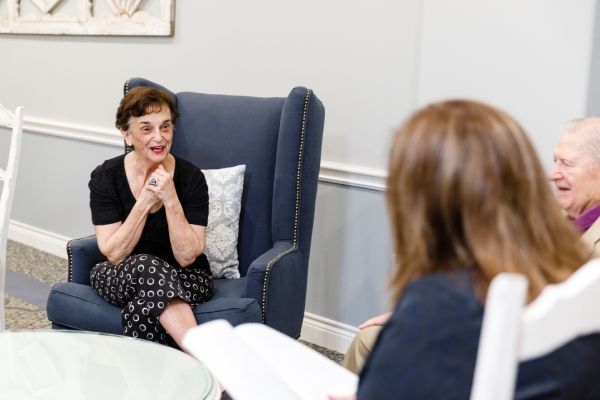
Needs and circumstances change with age, and it is common to need assistance with a few daily tasks to maintain an independent lifestyle. Some people also tire of keeping up with household chores or might desire easier ways to stay connected with friends.
For many older adults and their families, this stage of life prompts an important question: What type of senior living option is best for me or my loved one?
Senior living communities are designed to ensure the health and well-being of older adults who need extra help or simply want to say goodbye to tedious chores like cooking and cleaning. They provide welcoming, secure environments where retirees can thrive, enjoy social activities, and receive the care they need.
But with such a wide variety of retirement homes, assisted living communities, and dementia care options available, determining which best suits your needs can be overwhelming.
The journey to finding your ideal senior living community is yours. We’re here to guide you every step of the way. Start with our quiz and follow our guide below to learn more about age-restricted communities.

How do people pay for senior living?
Making Miracles Happen Every Day
Types of Senior Living
Senior living is a broad category with a variety of residential options designed to accommodate different levels of service. These communities strive to enhance the quality of life for residents through environments that promote independence, social interaction, and high-quality caregiving.
Independent Living
Independent living is ideal for active seniors who require minimal assistance with daily activities. It offers the benefits of living in a community with other seniors with amenities like fitness centers, dining services, and lifestyle programs. Residents maintain their privacy and independence in private apartments or houses.
A typical independent living community resident enjoys this freedom but appreciates the advantages of maintenance-free living and the social opportunities the community provides.
Independent living communities that offer higher types of care are designed to help residents age in place.

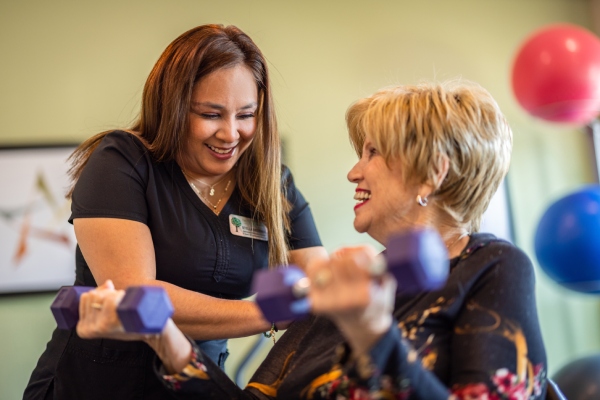
Assisted Living
Assisted living bridges the gap between independent living and nursing homes; in some states, these are known as personal care communities. Their caregiving teams help residents with bathing, dressing, meal preparation, and medication management. Assisted living communities also offer lifestyle programs and transportation services.
An assisted living resident may find the responsibilities of home ownership burdensome. They may also need some assistance with daily tasks but do not require intensive medical care.
According to the National Center for Assisted Living, most residents need help with at least two activities of daily living (ADLs). The most common ADLs are bathing and mobility. Others include:
- Personal care and hygiene
- Meal preparation and feeding
- Bed transferring
Studies have shown time and time again how beneficial social circles are for older adults. People tend to age better when friends and family surround them; it’s one of the most significant benefits of senior living.
Memory Care
Memory care communities provide specialized support for seniors with Alzheimer’s disease and other forms of dementia. They offer secure environments, structured activities, and compassionate, trained team members to enhance the quality of life for residents.
A typical memory care community resident requires a higher level of supervision due to memory loss, confusion, or difficulty with daily tasks. Sometimes, assisted living residents transition into memory care as their needs change. Aging in place is made easier for those living in communities that offer both services.
A family member is often the first person to provide help for a loved one with dementia, so many memory care residents move in directly from their homes. Family caregivers are true heroes, but providing dementia care without help is challenging. Memory care communities allow family members to return to their traditional roles.
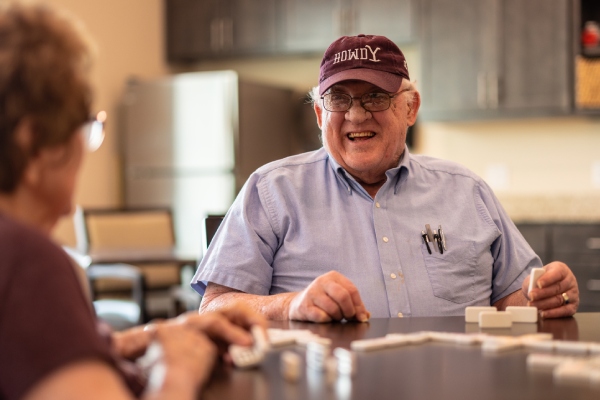
Determining Your Senior Housing Type Based on Care Type
Now that you know more about senior housing communities, your choice can be aligned with your loved one’s needs.
Signs It's Time for Independent Living
As seniors age, their needs and lifestyles can change gradually or drastically. There may come a time when transitioning to a senior living community becomes a viable option. Here are some signs that it might be time for independent living:
When seniors find it increasingly challenging to manage household chores like cleaning, cooking, or home maintenance, they might benefit from the services offered in an independent living community.
Seniors who crave social interaction and a sense of community but lack these opportunities find independent living appealing. These communities offer companionship and numerous lifestyle programs.
If living alone becomes a concern due to the risk of falls, accidents, or other emergencies, transitioning to independent living can provide round-the-clock support, assistance, and peace of mind.
When seniors wish to downsize and simplify their lives, moving to an independent living community offers the opportunity to live in a smaller, maintenance-free space that makes life easier.
Independent living communities offer fitness centers and wellness programs, benefiting seniors who want to focus on their health and well-being.
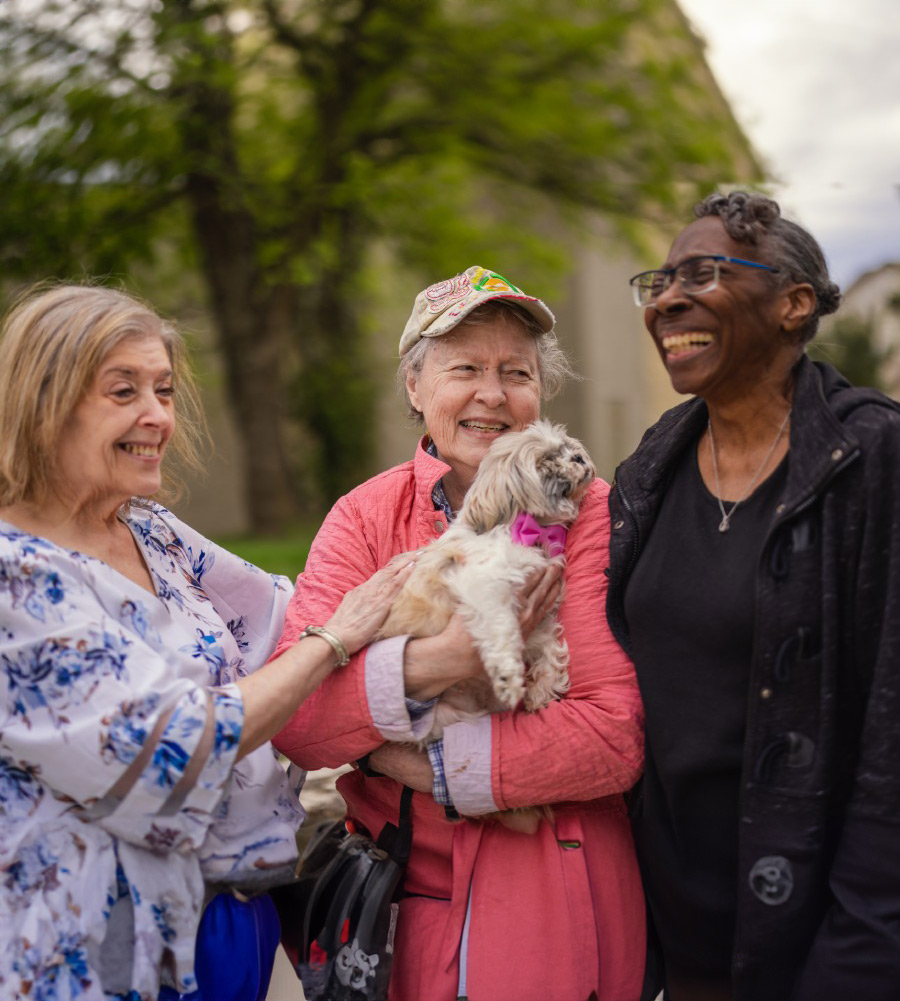
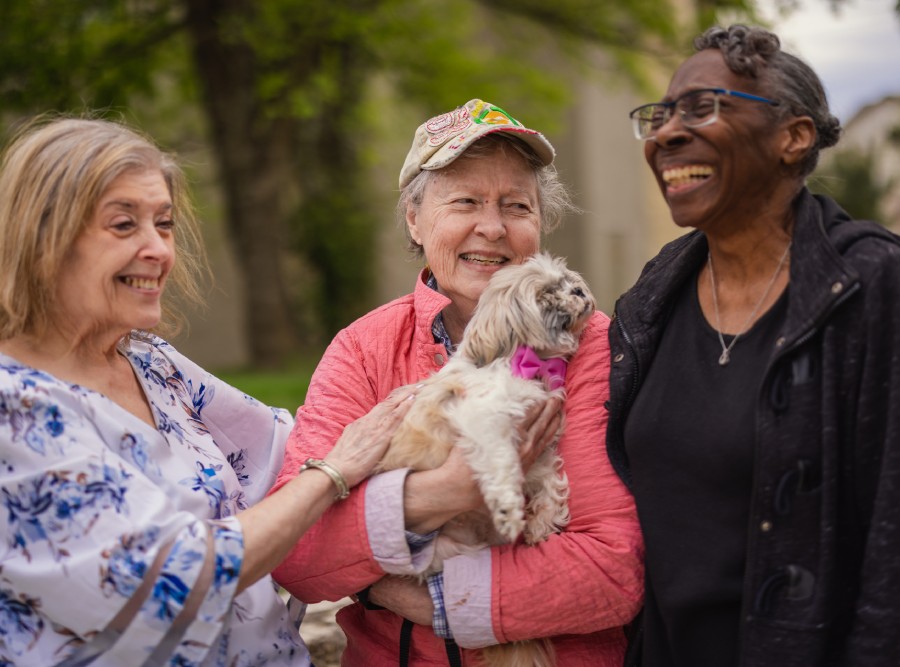
Signs It's Time for Assisted Living
Here are some signs that indicate it might be time for assisted living:
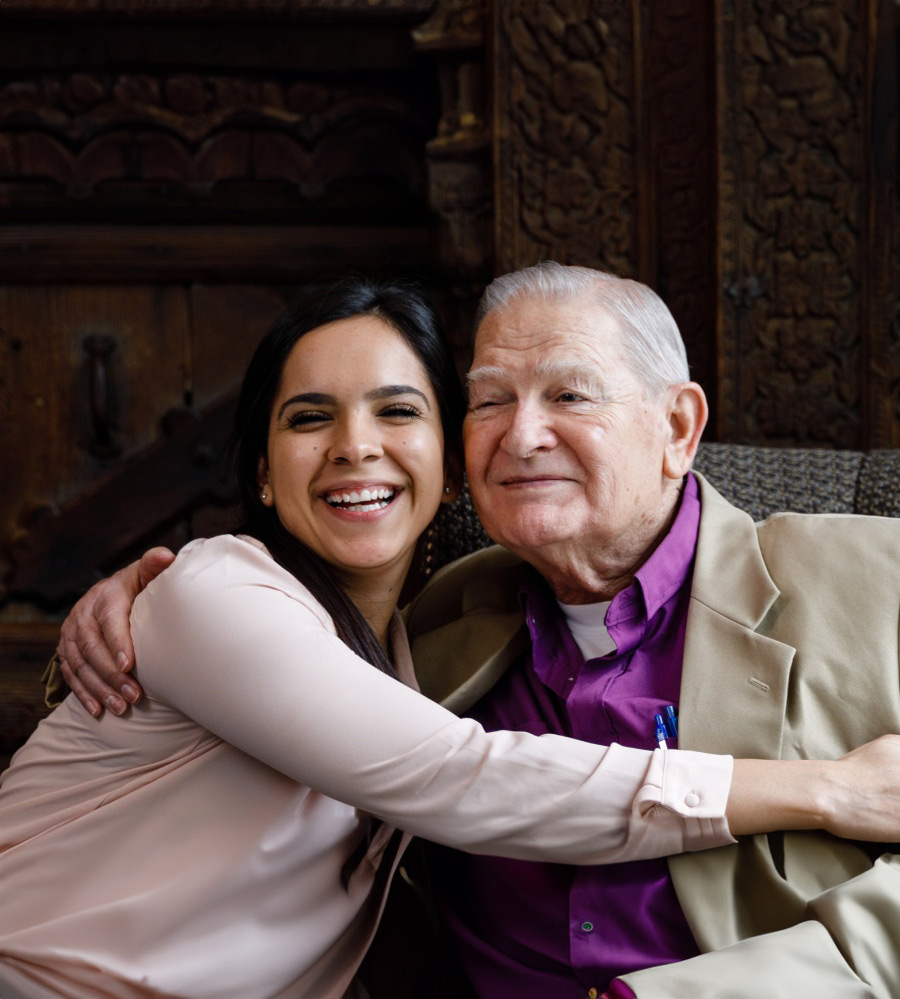

If a senior is struggling with bathing, dressing, grooming, meal preparation, or medications, it may be an indicator that they need assistance with these daily tasks.
Frequent accidents, falls, or incidents that pose risks to a senior’s well-being may necessitate a move to assisted living where caregivers provide immediate help and supervision. Built-in features within communities like grab bars and handrails also prevent accidents.
Seniors are often isolated and lonely because of minimal social interaction or support from family and friends. They can benefit from the companionship offered in an assisted living community.
Progressive health conditions that require regular monitoring and medical attention can be managed more effectively in an assisted living setting with trained team members and on-site medical resources.
Caregiver burnout and stress also indicate the need for professional assistance. Assisted living communities can provide relief for both loved ones and their caregivers.
Signs It's Time for Memory Care
Identifying the right time for memory care is crucial for ensuring that seniors with memory loss receive the best possible support. Here are some signs that it might be time for memory care:
When a senior experiences significant memory loss, confusion, disorientation, or an inability to recognize loved ones, it may be time for memory care.
Seniors with memory issues who wander, get lost, or face other risks due to their condition require the secure environment and supervision found at memory care communities.
Difficulty with daily tasks like dressing, bathing, eating, and taking medications can signal the need for memory care.
Behavioral changes like aggression, agitation, or emotional distress may indicate that a senior needs specialized care from trained caregivers at memory care communities.
Caring for a loved one with Alzheimer’s or dementia can be emotionally and physically draining. If the family caregiver is experiencing significant stress, memory care can ensure the best quality of life for the senior and prevent caregiver burnout.
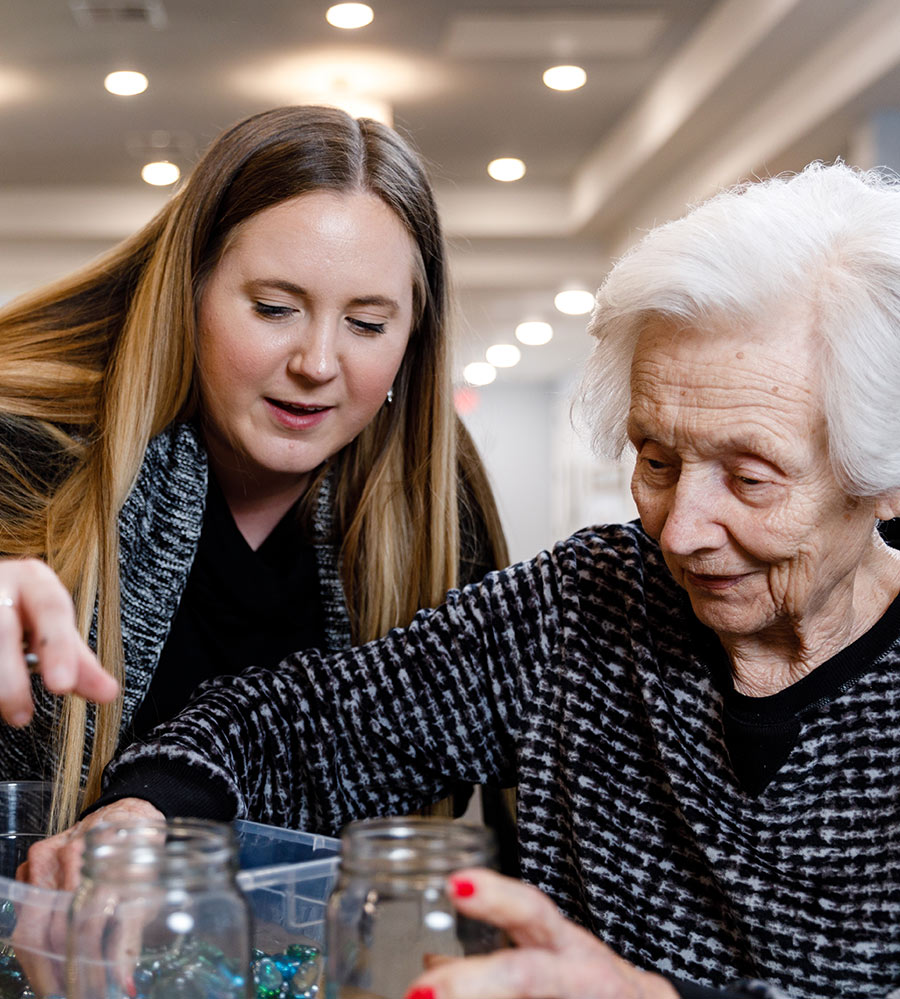
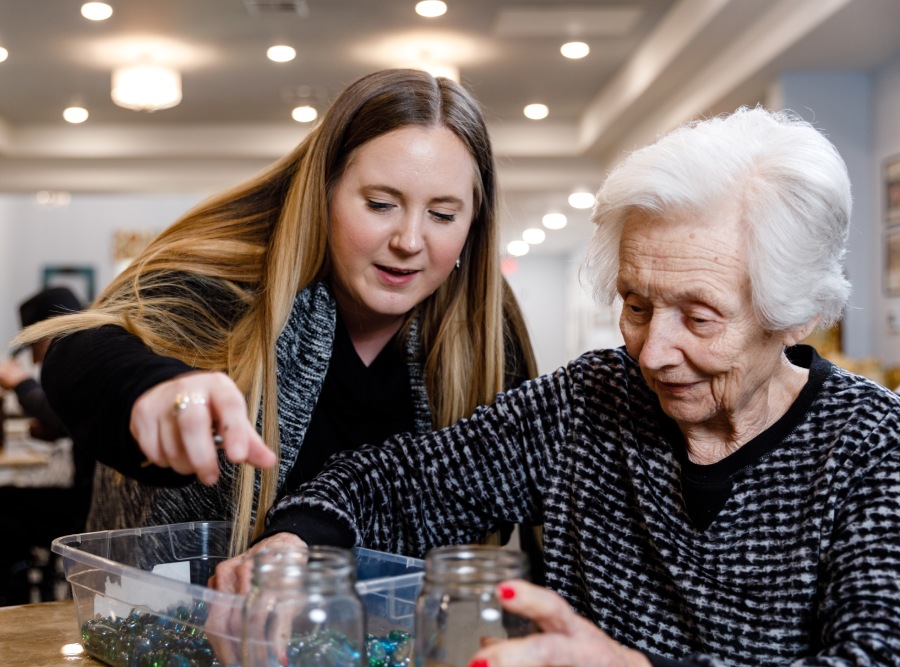
Still Have Questions About Senior Living Near You?
Speak with the senior living professionals at StoneCreek of Littleton about your specific needs. Contact us today!


